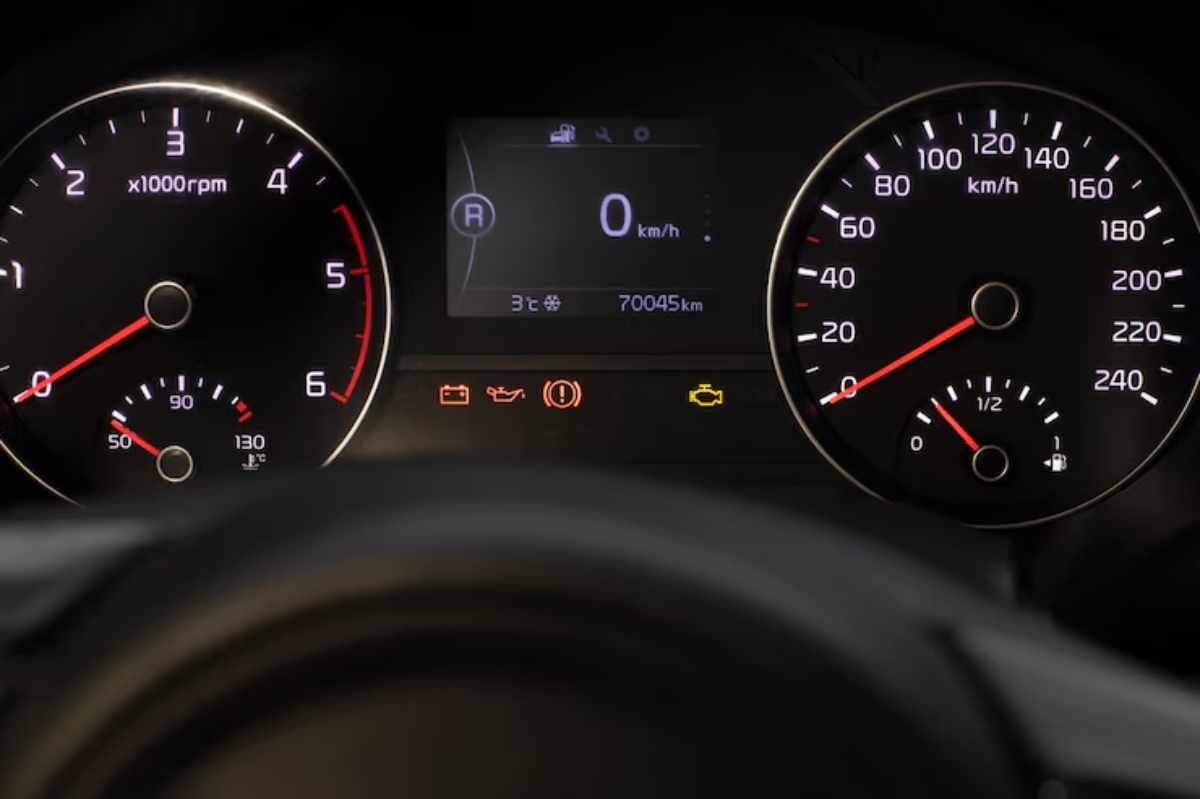If you’ve ever been driving and suddenly noticed your dashboard warning—check engine light flashing—you’re not alone. It’s a moment that can cause instant anxiety for any car owner.
Understanding what this signal means and how to respond is crucial for your vehicle’s health and safety. So, why is my check engine light flashing?
Find out now as we break down the most common causes, potential consequences, and the proper steps to take when this warning appears.

Understanding the Check Engine Light
Before answering, “Why is my check engine light flashing? Find out now,” it’s important to understand what the check engine light represents. It’s part of your car’s onboard diagnostics system (OBD-II), which monitors engine performance and emissions.
When the check engine light is solid, it typically means a minor issue, such as a loose gas cap or a sensor failure. However, the check engine light flashing indicates a much more severe problem that needs immediate attention.
Why Is My Check Engine Light Flashing? Find Out Now
If you’re wondering, “Why is my check engine light flashing?” the most common answer is that your vehicle has a misfire. Engine misfires can cause unburned fuel to enter the exhaust system, potentially damaging your catalytic converter, an expensive component to replace. Let’s look at the top reasons why this may be happening.
1. Engine Misfires
This is the number one reason your check engine light might be flashing. Misfires occur when one or more cylinders in your engine fail to ignite properly. Worn spark plugs, bad ignition coils, or faulty fuel injectors can cause this.
If you’re wondering, ” Why is my check engine light flashing? Find out now.” Start by checking your ignition system.
2. Failing Catalytic Converter
A flashing check engine light can indicate your catalytic converter is at risk. The catalytic converter helps reduce harmful emissions by converting carbon monoxide and hydrocarbons into less toxic substances. If unburned fuel reaches the converter due to misfires, it can overheat and fail.
So, if you’re still asking, “Why is my check engine light flashing? Find out now. ” Know that ignoring this warning can lead to costly repairs.
3. Faulty Spark Plugs or Wires
The worn-out spark plugs and wires Wearing out or broken sparkroken can disrupt a flashing check engine light and affect fuel efficiency and performance.
Replacing spark plugs is usually inexpensive and part of regular maintenance, which is another reason to address the issue immediately.
4. Ignition Coil Issues
The ignition coil converts the battery’s voltage into the spark to ignite the fuel. Malfunctioning can cause one or more cylinders to misfire, resulting in a flashing check engine light.
So, again, why is my check engine light flashing? Find out how—it could be as simple as replacing a faulty coil.
5. Fuel System Problems
Clogged gasoline injectors, low fuel pressure, or a malfunctioning fuel pump can all contribute to engine misfires. These fuel system issues are another common culprit for a flashing check engine light.
If your vehicle feels sluggish or shakes while driving, and the light is flashing—don’t delay diagnosis.
What to Do Immediately
Knowing the answer to “Why is my check engine light flashing? Find out now” is only part of the equation. The next step is taking appropriate action to prevent further damage.
Reduce Speed and Load
When the light flashes, lower your speed and avoid strong acceleration or towing. Continuing to drive under stress could cause engine or catalytic converter failure.
Pull Over Safely
If possible, pull over and turn off your vehicle. Check for obvious signs like smoke, odd smells, or unusual noises.
Check the Gas Cap
Sometimes, the issue can be as minor as a loose gas cap. Tighten it and see if the light stops flashing after a few minutes of driving. If not, the problem is more serious.
Schedule a Diagnostic Check
If you’re still wondering, “Why is my check engine light flashing? Find out now. ” The best answer is to get a diagnostic scan. Most auto parts stores offer this for free, or you can visit a certified mechanic for a complete assessment.
Is Driving Safe When the Check Engine Light Is On?
The short answer is no. Although a consistent check engine light can show minor issues, a flashing check engine light is an emergency signal. Driving with its flashing can cause irreversible damage to your engine or catalytic converter.
Preventing Future Check Engine Light Issues
While it’s essential to know, “Why is my check engine light flashing? Find out now,” it’s even better to prevent it from happening again. Here’s how:
Regular Maintenance
Follow your manufacturer’s recommended service schedule, which includes oil changes, spark plug replacements, and air filter checks.
Fuel Quality
Use the correct fuel grade for your car. Low-quality fuel can cause build-up and misfires over time.
Don’t Ignore Small Issues
A rough idle or sluggish performance may seem minor, but they can be early signs of larger problems. Address them early to avoid significant damage.
When to See a Mechanic
If the check engine light flashes, see a mechanic immediately. If your car is also shaking, losing power, or emitting smoke, have it towed instead of driving.
Conclusion:
Now you know the answer to the urgent question: “Why is my check engine light flashing? Find out now.” A check engine light that flashes is a severe warning usually caused by engine misfires, ignition issues, or fuel system failures.
Quick action can help you avoid costly repairs and ensure your safety on the road.
Frequently Asked Questions (FAQs):
What does it mean when my check engine light is flashing?
A flashing check engine light usually means a severe engine misfire, which can damage your catalytic converter if not addressed quickly.
Can I keep driving with a flashing check engine light?
No, it’s not safe. Continuing to drive can damage your engine or exhaust system, so you should pull over and seek mechanical assistance.
What causes a check engine light to flash?
Common causes include engine misfires, faulty spark plugs, ignition coil issues, or fuel system problems.
Will a loose gas cap cause the light to flash?
A loose gas cap typically triggers a steady, not flashing, check engine light. A flashing light indicates a more serious issue.
How do I fix a flashing check engine light?
You need to get a diagnostic scan from a mechanic or auto parts store to promptly identify and fix the exact issue.











